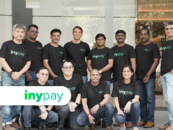
Malaysia’s High Financial Inclusion Rate Only ‘on Paper’, Mambu Says
by Fintech News Malaysia July 26, 2021A recent study of 2,000 global consumers by Mambu, a banking and financial services platform, revealed that both banked and unbanked individuals feel underserved, with 56% of banked customers claiming that there are other services they should be able to access.

Myles Bertrand
“With more than 290 million unbanked adults across Southeast Asia, the data that’s usually reported points us to emerging markets and geographical barriers to access; however, even consumers who are banked have reported gaps in financial accessibility,”
said Myles Bertrand, Managing Director Asia Pacific, at Mambu.
“Personalisation is going to be key for banks if they want to avoid being sidelined by new entrants that give more inclusivity and access. Banks need to be using the technology available to understand their consumers’ habits and in turn, anticipate their needs, with hyper-personalised recommendations and services.”
Gaps in financial accessibility for both banked and unbanked consumers
While Mambu has seen recent developments in technology bringing financial services to more people across the Asia Pacific region, the state of financial accessibility across several markets tells a different story.
This was shown by the one in four (26%) unbanked who believe that financial institutions could help them get a bank account by providing more personalised financial advisory services.
The difference between banked and unbanked may seem pretty distinct, but the research found a financial accessibility gap amongst both groups, as well as a gap in understanding of financial accessibility.
This proved true when Mambu’s study found that 81% of banked customers felt their situation would be better if they knew more about how finances worked, with more than half (58%) of unbanked customers feeling the same.
Low financial awareness in Malaysia can lead to credit card debt, bankruptcy
While Malaysia has high financial inclusion ‘on paper’, there are still significant gaps in access to financial services for many segments of the population.
Financial awareness in particular, is a serious issue as it can lead to very high levels of credit card debt and high levels of bankruptcy, especially among younger generations (under 34 years).
Gaps in financial awareness have really come to light during the COVID-19 crisis, with 77% of respondents noting that the pandemic has highlighted the importance of being able to understand and access a wide range of financial services.
According to consumers though, financial institutions aren’t taking the necessary steps to boost accessibility.
This may soon change in Malaysia though, with Bank Negara Malaysia set to issue up to five digital banking licenses by Q1 2022, putting a huge focus on fintech innovation which will help in bridging the gap.
Banks need to step up to meet customer expectations
There is a clear need for better awareness and education around financial services, and banks need to step into this role in order to serve their customers’ needs.
Currently many consumers (57% of banked and 36% of unbanked) are relying on the internet and/or online searches, rather than their banks, to find more financial information and to learn about their access to the right financial products.
However, 56% of respondents believed that financial institutions should be responsible for educating consumers about their finances.
Key findings of the Mambu survey:
- More than half of unbanked customers (65%) were less than pleased with their financial situation.
- In the banked community, one in four (25%) are not happy with their current level of understanding about their finances and options available to them.
- In the median and above wage brackets (equalling US$63,000 and above per annum), nearly half (48%) stated they didn’t know how to open a bank account
- 28% of respondents stated they think banks should make it easier to understand how to open an account
- 26% of unbanked respondents believed that financial institutions could help them get a bank account by providing more personalised financial advisory services
- 40% of unbanked consumers stated providing more specialised and mobile/web-based services would help them become banked.
This is the second study of Mambu’s recently launched research series, Disruption Diaries.
The series seeks to understand what customers think of the key trends driving the development of the financial services industry, in an effort to identify opportunities for banks and others.
The full report on financial accessibility can be found here.
Featured image: Photo by Polina Kuzovkova on Unsplash






